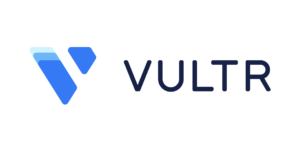WEST PALM BEACH, Fla., June 27, 2024 — Vultr today released a new industry report, The New Battlefield: Unleashing the Power of AI Maturity with Multi-Model AIThe new study reveals a clear correlation between an organization’s AI maturity and its ability to deliver superior business outcomes, outpacing industry peers in revenue growth, market share, customer satisfaction and operational efficiency.
 Commissioned by Vultr and conducted by S&P Global Market Intelligence, the study surveyed more than 1,000 U.S.-based enterprise IT and digital transformation decision-makers responsible for their organization’s AI strategy across industries, including healthcare and life sciences, government/public sector, retail, manufacturing. , financial services, and more. Of those surveyed, almost three-quarters (72%) have reached higher levels of maturity in using AI. The report also includes a qualitative perspective on the use of AI by companies of different sizes in the United States, through in-depth interviews with decision-makers and AI practitioners.
Commissioned by Vultr and conducted by S&P Global Market Intelligence, the study surveyed more than 1,000 U.S.-based enterprise IT and digital transformation decision-makers responsible for their organization’s AI strategy across industries, including healthcare and life sciences, government/public sector, retail, manufacturing. , financial services, and more. Of those surveyed, almost three-quarters (72%) have reached higher levels of maturity in using AI. The report also includes a qualitative perspective on the use of AI by companies of different sizes in the United States, through in-depth interviews with decision-makers and AI practitioners.
“As businesses around the world capitalize on their strategic investments in AI, we wanted to examine the state of AI maturity,” said Kevin Cochrane, CMO of Constant, Vultr’s parent company. “We have seen that transformative companies win hearts, minds and wallet share while improving their operating margins. AI maturity is the new competitive weapon, and companies must invest now to accelerate AI models, training, and production scaling. »
The era of multi-model AI
The number of models actively used within an organization is a reliable measure of its deployed AI capabilities and overall AI maturity. Data reveals that advanced AI adopters leverage a multitude of models simultaneously in a multi-model approach.
On average, the number of distinct AI models currently operational stands at 158 and projections suggest that this number will reach 176 AI models over the next year. This growth highlights a remarkable acceleration in AI adoption across industries, as evidenced by the 89% of organizations planning advanced use of AI within two years.
AI mastery and maturity is the new battleground for business performance
AI is poised to take over the entire enterprise, with adoption expected to reach 80% across all business functions within 24 months. This will involve integrating AI across all applications and business units.
AI will establish itself in businesses and will have a considerable impact on business performance. According to the report, companies that adopted transformational AI practices reported outperforming their peers at higher levels. Specifically, 50% of transformational companies perform “significantly better” than their industry peers operationally, while a large majority of AI-focused organizations report year-over-year performance improvement over the other in 2022/2023 in terms of customer satisfaction (90%), turnover (91%), cost reduction/margin increase (88%), risk (87%), marketing (89%) and market share (89%). At the same time, almost half (40-45%) of organizations say AI has a “major” impact on market share, revenue, customer satisfaction, marketing improvements and reduction costs and risks.
“The transformative impact of AI is undeniable: it is devouring industries and becoming pervasive in every aspect of business operations. This requires a new era of technology, supported by a composable stack and platform engineering to effectively scale these innovations,” Cochrane said.
AI spending expected to outpace IT spending
To fully realize the potential of AI, 88% of surveyed companies plan to increase their AI spending in 2025, with 49% expecting a moderate to significant increase. Key infrastructure, partnership, and implementation strategies include:
- For cloud-native applications, two-thirds of organizations custom build their models or use open source models to provide functionality.
- By 2025, the AI infrastructure stack will be a hybrid cloud with 35% of inference performed on-premises and 38% in the cloud/multi-cloud.
- Due to the skills shortage, 47% of businesses are hiring a partner to help them with strategy, implementation, and scaling. Only 15% of them operate hyperscalers such as AWS, GCP or Azure.
- Open, secure, and compliant are key attributes of cloud platforms to scale AI across the organization, geographies, and to the edge.
“For years, hyperscalers have dominated the infrastructure market, leveraging scale, resources and technological expertise, but that is all about to change,” added Cochrane. “Over the next decade, everything will be rebuilt with AI at the heart, with organizations integrating cloud engineering principles into their operations. As a result, we will see the emergence of AI specialists and freelancers, who will enable organizations to achieve transformational work and gain a competitive advantage. »
The Challenges of Scaling AI Across Businesses
As the race for AI heats up, it will not be without its share of obstacles. Budget limitations, creating or obtaining AI algorithms, lack of qualified staff, and data quality are among the top obstacles organizations say they must overcome to move to the next stage of AI maturity. AI. For those who have reached a transformational level of maturity, governance (30%) becomes a much bigger issue, while company culture is the most important issue for those who are still in the acceleration phase.
For more information or to download a copy of the full report, please visit here.
About Constant and Vultr
Constant, the creator and parent company of Vultris on a mission to make high-performance cloud computing easy to use, affordable, and locally accessible for businesses and developers around the world. Vultr has served over 1.5 million customers in 185 countries with flexible and scalable global Cloud Compute, Cloud GPU, Bare Metal, and Cloud Storage solutions. Founded by David Aninowsky and fully bootstrapped, Vultr has grown to become the world’s largest privately held cloud computing company without ever raising equity.
Source: Vultr


